Wildwood Boardwalk Construction BACK ON After Lawsuit
A recent legal battle that has captured the attention of local businesses and residents alike, L. Feriozzi Concrete Company, hereafter referred to as the Plaintiff, went head-to-head with the City of Wildwood and Fred M. Schiavone Construction, Inc., hereafter referred to as the Defendants.
The dispute revolves around the “2023 Boardwalk Rehabilitation Phase III, IV & V project” in the City of Wildwood, New Jersey. On November 1, 2023, the Court reached a verdict after carefully considering the moving papers and conducting oral arguments.
The legal dispute started when the Plaintiff filed a Complaint in Lieu of Prerogative Writ against the City of Wildwood and Schiavone Construction on October 11, 2023. In response, the Court issued temporary ex parte restraints against the Defendants on October 16.
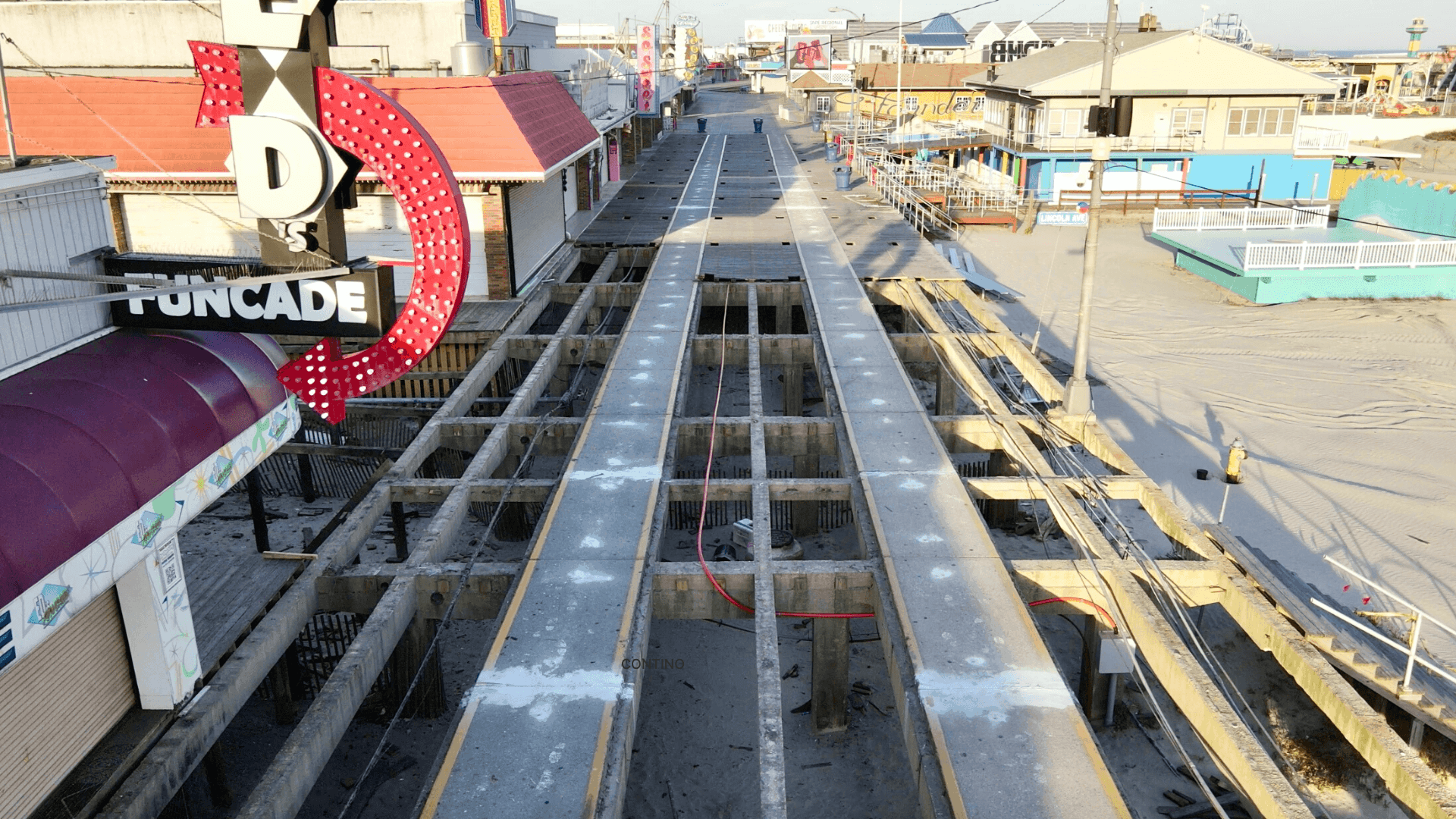
Wildwood Boardwalk Construction BACK ON After Lawsuit
The Plaintiff sought to obtain preliminary and permanent injunctions to halt any work on the “2023 Boardwalk Rehabilitation” project by Schiavone and the City. Defendants promptly filed briefs in opposition, with the City maintaining that Schiavone intended to perform structural steel work themselves, thereby negating the need to name a subcontractor.
Furthermore, the City asserted that Schiavone’s qualification to undertake such work was not subject to the New Jersey Division of Property Management and Construction (DPMC) approval, as per the nature of the project. On October 30, four Wildwood businesses filed a Motion to Intervene on Short Notice, expressing their interest in the outcome of the case. On November 1, oral arguments were presented.
The Plaintiff’s argument revolved around the failure of Schiavone to name a subcontractor for structural steel work in their bid submission. They argued that this omission rendered Schiavone’s bid materially defective.
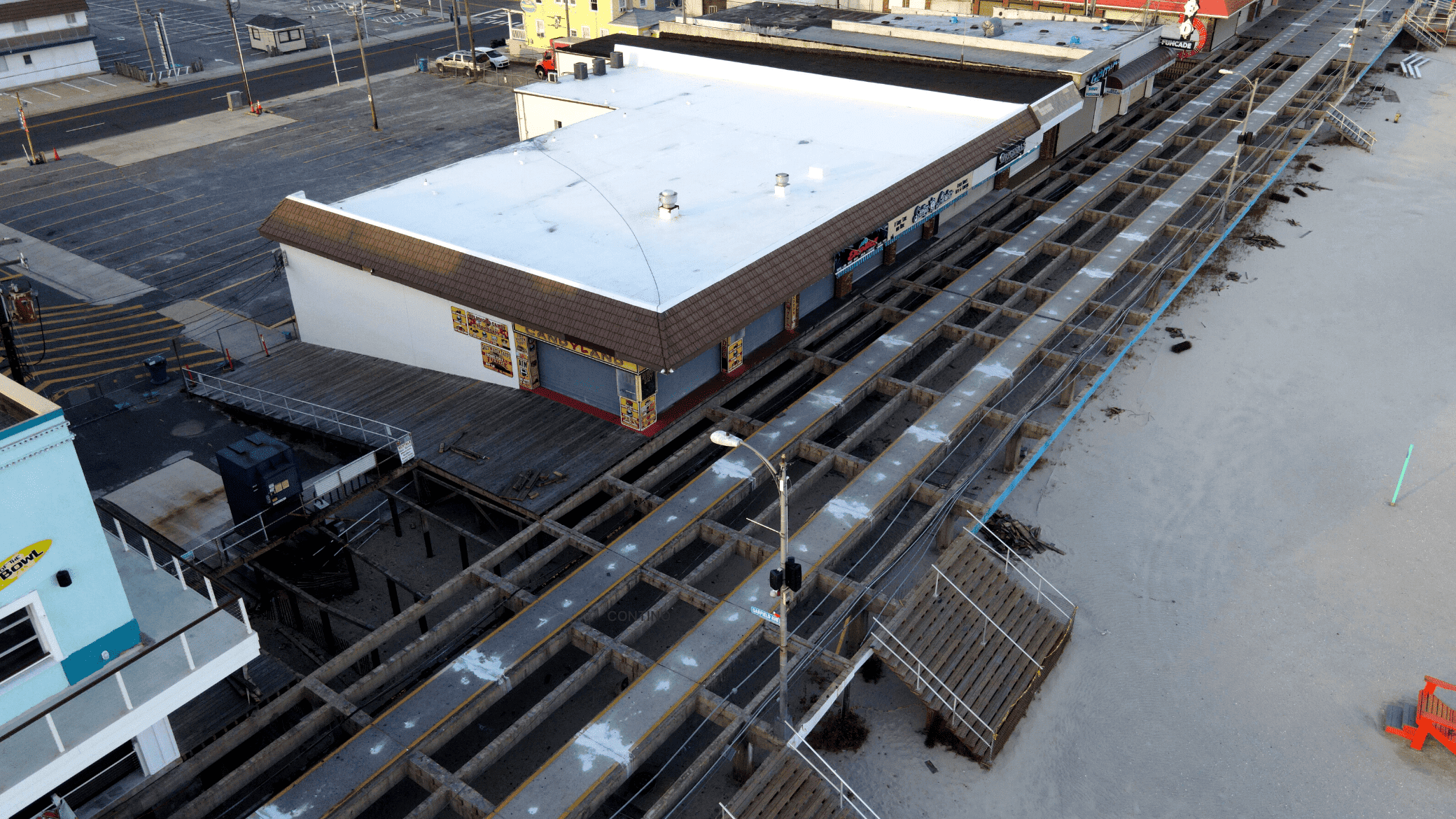
This test includes the absence of bidder claims for damages, adherence to the Local Public Contracts Law (LPCL) specifying that construction projects be granted to the lowest bidder, the material defect in Schiavone’s bid, and a balance of harms favoring public safety.
The Defendants countered the Plaintiff’s arguments by asserting that Schiavone intended to perform the structural steel work themselves, thus obviating the need to name a subcontractor. They also argued that Schiavone’s qualification to perform such work did not require DPMC approval due to the unique nature of the project, a position they claimed the Plaintiff acknowledged.
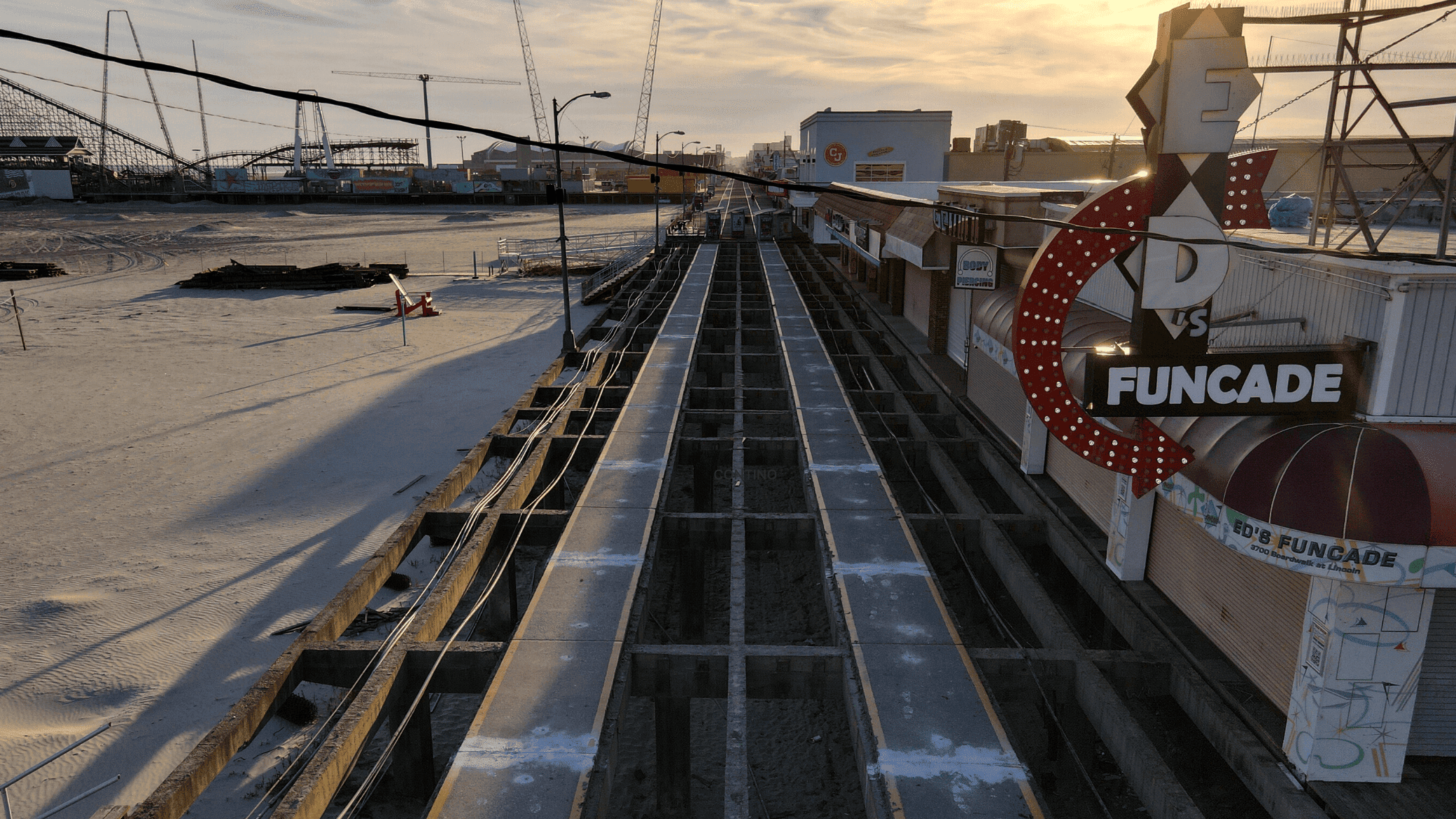
Wildwood Boardwalk Project PAUSED Due to Lawsuit
Additionally, they highlighted Schiavone’s prior successful completion of the same type of work for the City during Phase II of the Boardwalk Rehabilitation project. They invoked the “Crowe v. DeGoia” test to contend that the Plaintiff had not met the requirements for injunctive relief.
Schiavone reiterated the legal arguments presented by the City of Wildwood, emphasizing that there was no legal obligation to name a subcontractor for the structural steel work. They also stated that they possessed the necessary qualifications to perform the required work and highlighted their successful completion of similar work in the past.
The Plaintiff reiterated their argument concerning the legal obligation to name a subcontractor for structural steel work as per the LPCL. They pointed out that N.J.S.A. 40A:11-23.2 deems the failure to submit mandatory subcontractors as a fatal defect. However, the Defendants’ contention that they were not required to name a subcontractor was challenged, leaving the matter of Schiavone’s obligations under the LPCL open for discussion.
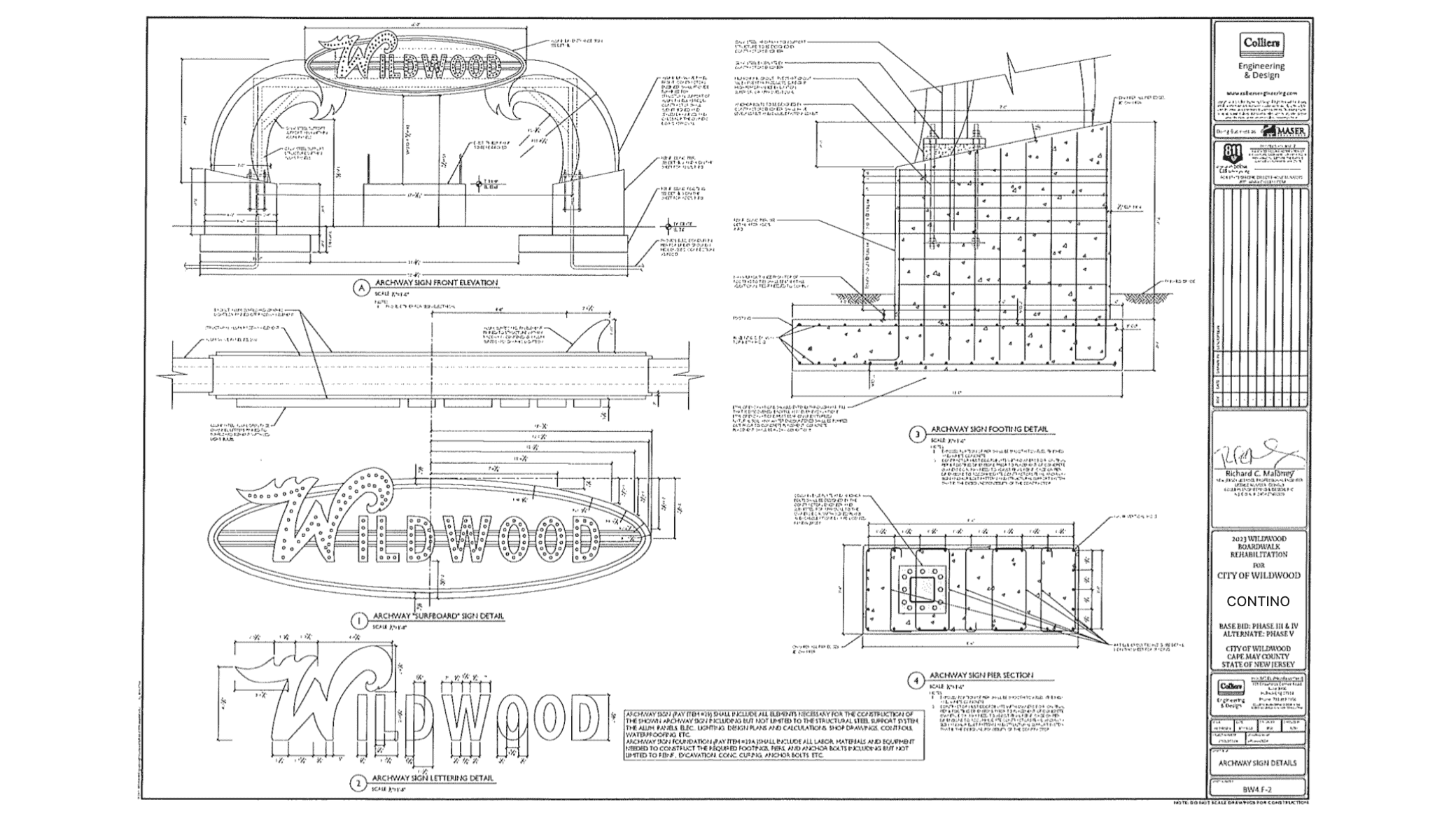
The motion was made under New Jersey Court Rule 4:33-1, known as “Intervention as of Right,” which allows anyone with an interest related to the subject of the action to intervene if existing parties inadequately represent their interest. The Court granted this motion.
Since an unfinished boardwalk would cause harm to not only boardwalk shops, attractions and restaurants, it would also interfere with motel and hotel bookings. This is why these companies got involved.
Also See: Ørsted CANCELS New Jersey Wind Farm
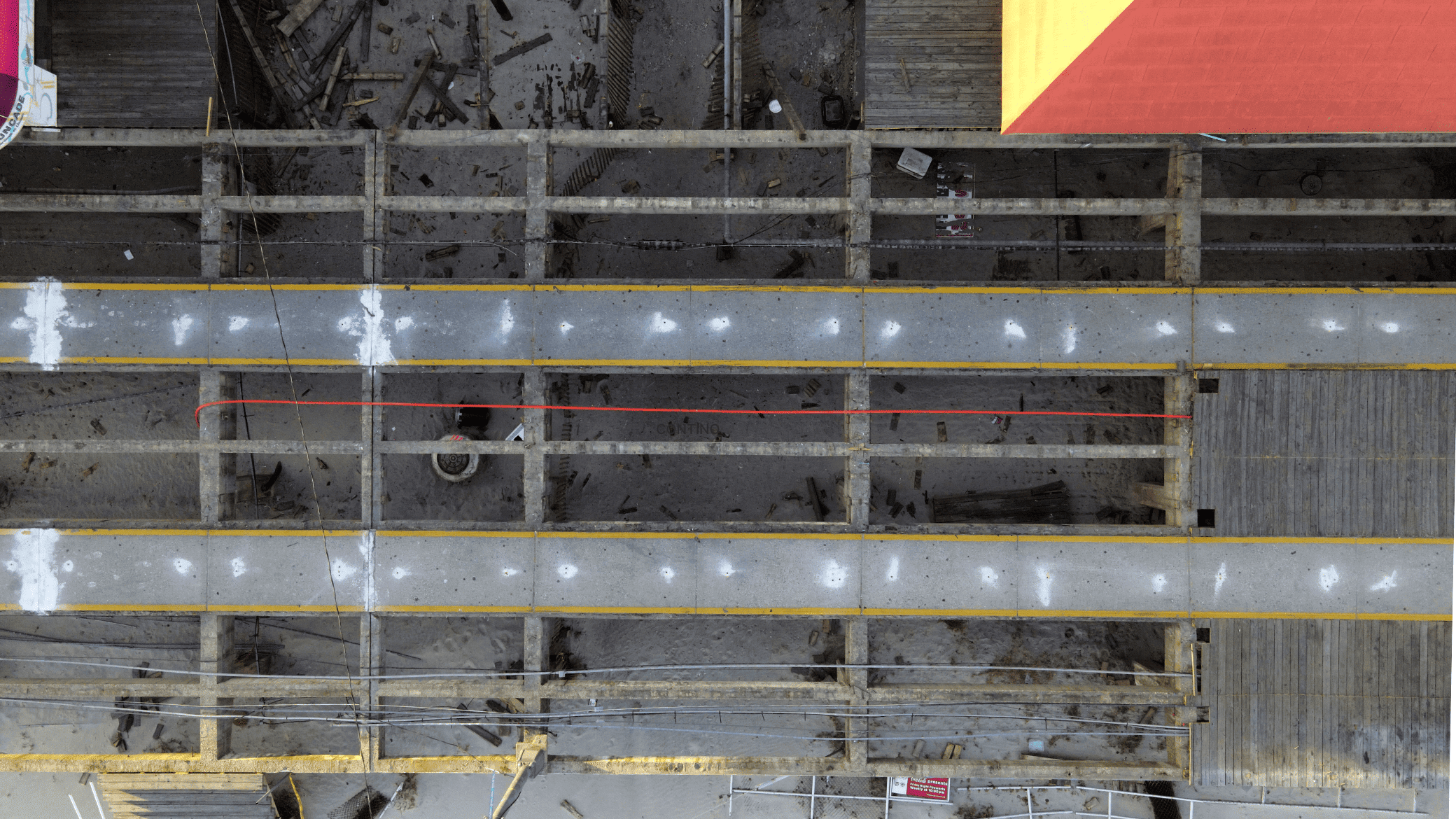
Irreparable Harm: The Plaintiff had to show that preliminary relief was necessary to prevent irreparable harm. This factor favored the Plaintiff, as monetary damages were not available against a public entity for the wrongful award of a contract.
Additionally, Plaintiff had demonstrated that, should Schiavone’s bid be deemed wrongful, they would be entitled to the contract, making injunctive relief the only remedy.
Settled Legal Right: The second factor required the legal right underlying the Plaintiff’s claim to be settled. Here, the Court found that Schiavone was not legally obligated to name a subcontractor, contrary to the Plaintiff’s arguments. While the LPCL specified certain bidding requirements, it was unclear whether these obligations applied to Schiavone, given the specific nature of the project.
Reasonable Probability of Success on the Merits: The third factor required the Plaintiff to show a reasonable probability of success on the merits. The Court found that the Plaintiff had not met this requirement. They failed to demonstrate that Schiavone was legally unqualified to perform the necessary work or that their bid was materially defective. The Court accepted Schiavone’s assertion.
Balancing of Harms: Finally, the fourth factor required a balancing of harms. While the Court acknowledged the potential for economic harm to the Plaintiff, they also considered the broader public interest in completing the Project without delay. They concluded that the balance of harms weighed against granting the preliminary injunction.
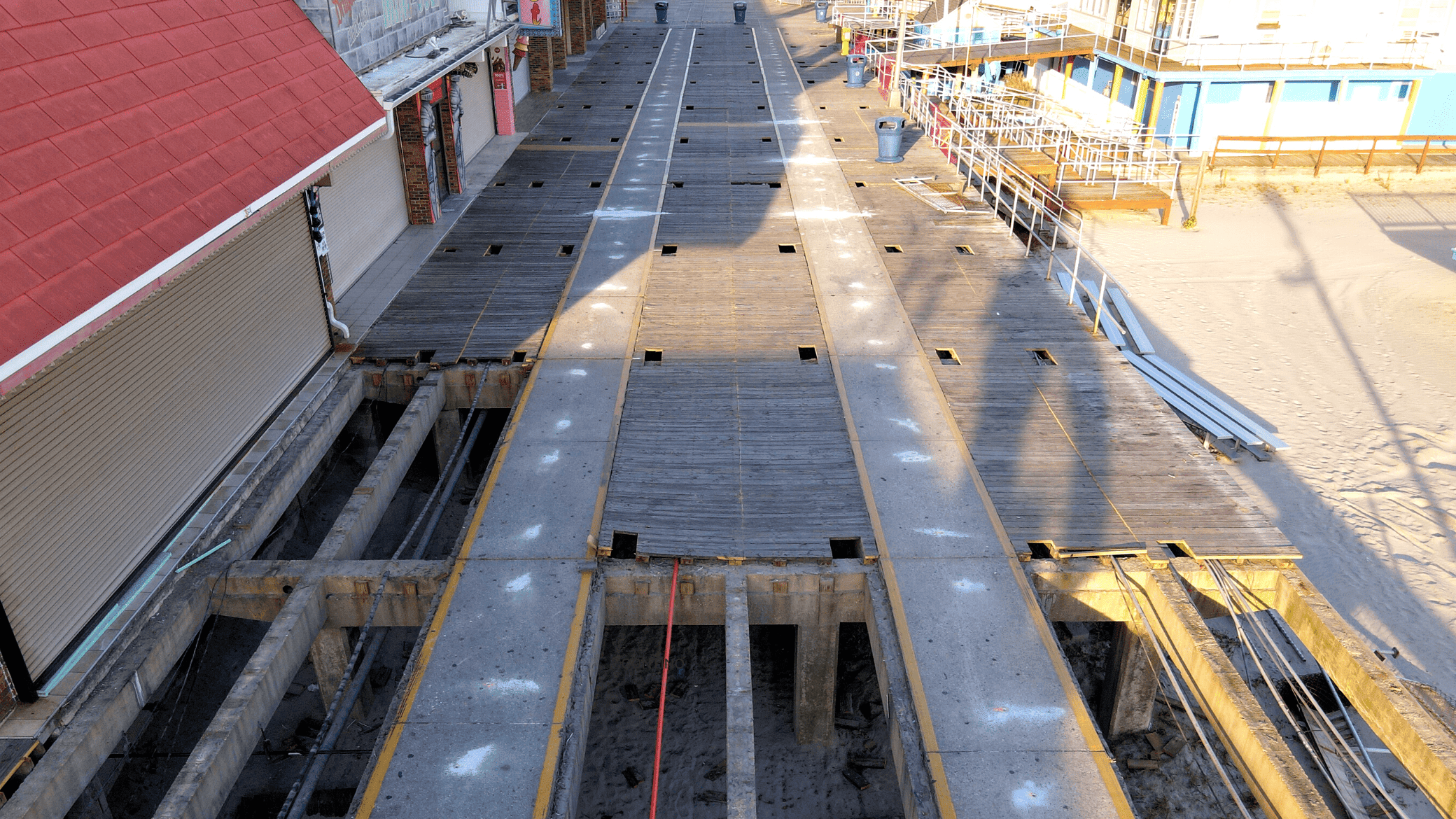
The Court’s denial of the Plaintiff’s request for a preliminary injunction, now allows Schiavone to proceed with the 2023 Wildwood Boardwalk Rehabilitation project.
There is always the possibility of the Plaintiff going to appeals which is something we will be sure to keep you in the loop on.
Below is a tour video of the 2023 Wildwood Boardwalk Rehabilitation project on its first day of construction.
Before you watch please consider subscribing.
